After a delay last season due to a “technical issue”, Ortovox is back with their line of LiTRIC airbag packs. To get this out of the way early, I’ll give props to Ortovox’s patience for recognizing an issue and (hopefully) solving it, rather than succumb to pressure to get a product to market that ends up making early adopters feel like beta testers.
I have been hesitant ro review packs up to this point, given my severe conflict of interest with my company, Apocalypse Equipment. On the flipside, I might spend more time thinking about backpacks than any other piece of gear—so perhaps I can provide some valuable insight. The LiTRIC Zero we have here sucked me in with the one of the lightest battery powered airbag systems and a very simple, lightweight bag.
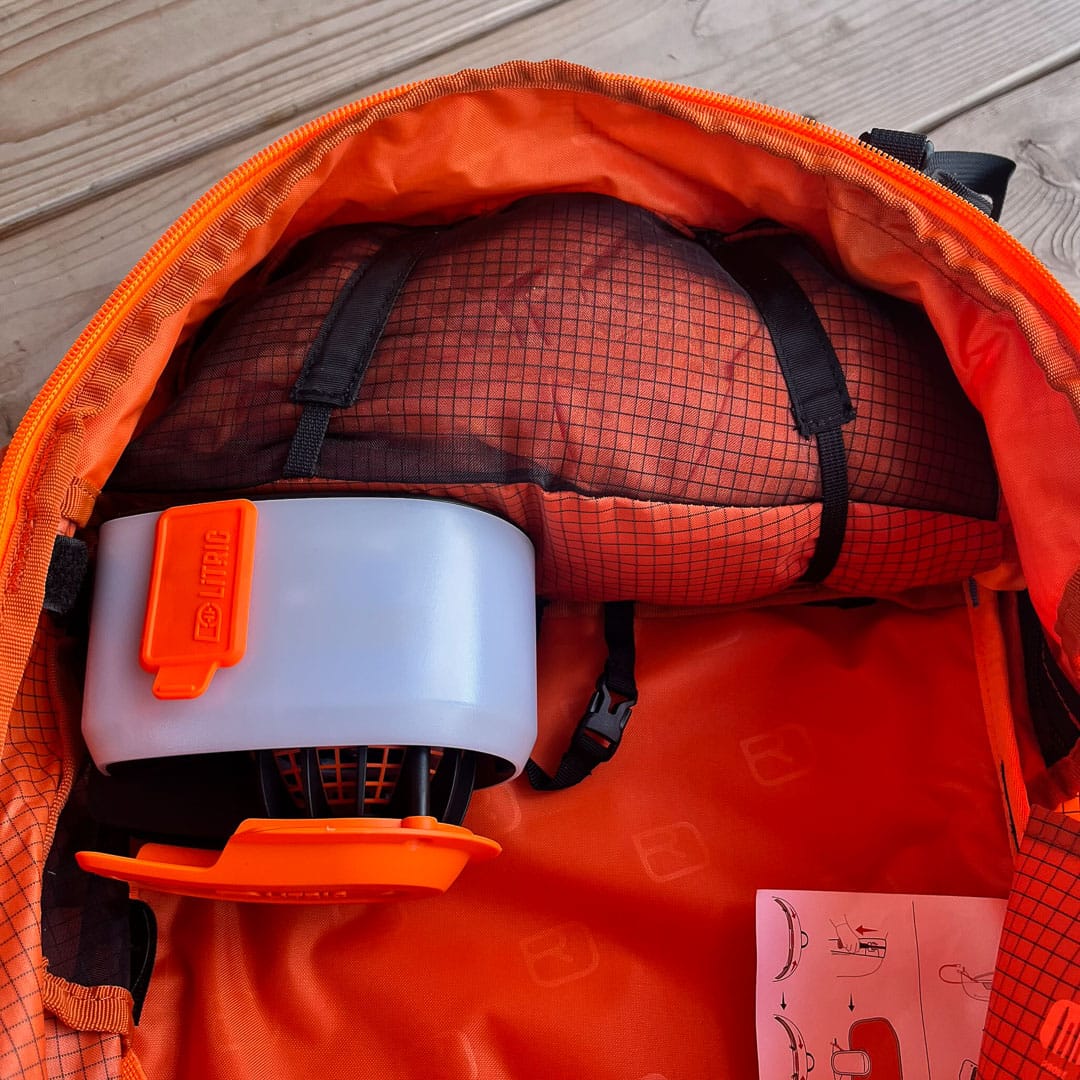
LiTRIC System
From my somewhat undereducated perspective, the LiTRIC system seems excellent. After a quick charge with the included USB-C cable, the charge indicator turned green and I was able to power on the inflation device, rotate the trigger to arm the system, and deploy the airbag. I figured all this out without glancing at the owner’s manual, and only had to reference the manual to figure out how to deflate the airbag (hint: there is a little key attached in the front pocket that pushes into the fan assembly to deflate the system).
The power/fan system across the Ortovox line of LiTRIC packs is the same. The unit is powered by a Lithium-ion battery (3.7V / 2000mAh / 7.4Wh). That battery charges supercapacitors that turn the unit fan and deploys the airbag. It’s possible to get multiple deployments from a single charge, as the Lithium-ion battery recharges the supercapacitors over ~30 minutes.
A fully depleted system will take several hours to fully charge using a USB C cable and a power supply. During a hut trip, it’s possible to charge the unit using a portable battery. In testing, we could get several full inflations from a single charge. The idea and functionality of a secondary inflation is nice (and in the case of the LiTRIC system, easy). But, if you are pulling the trigger (not just for practice) more than once, it may be time to pivot and find non-avalanche terrain.
Other items of note. Restuffing the airbag is easy. The airbag compartment latch works—no longer must you rely on burst zippers that “burst” randomly and allow the airbag to sloppily and slowly emerge.. And the twist function on/off trigger, which remains exposed on the shoulder strap at all times, is highly functional. This is a more highly evolved iteration of the original Arc’Teryx Voltair arm/disarm trigger. The leg strap, which runs through the legs and clips with a small carabiner (non-locking) to a sewn-reinforced leg strap loop is quick and efficient to engage. The strap is hi-vis orange, making it easy to see dangling down when not clipped properly. (Train yourself and your friends to look for the dangling orange webbing—like all airbag packs, a properly engaged leg strap helps prevent the airbag from being pulled off in the event you are caught in a slide.
The LiTRIC packs make it easy to determine the power and charge status as they incorporate a see-through mesh through which the unit’s green-yellow-red indicator lights are visible. Lastly, the unit powers up and down by simply pressing a button. The button is covered by a rubber cover to prevent accidental on-offs when skiing/skinning.
Maybe this is last: Air travel with the LiTRIC system is possible, despite its non-removable Lithium-ion battery. The pack is categorized at PPE. As such, Ortovox provides a technical data sheet to provide the kind folks at security. According to a Reddit post by Ortovox, they claim “Make sure, that the LiTRIC system is switched off, secure it against accidental activation, and carry it as hand luggage. We understand that the fixed lithium-ion battery might raise concerns, but rest assured that it meets international safety standards for air travel.”
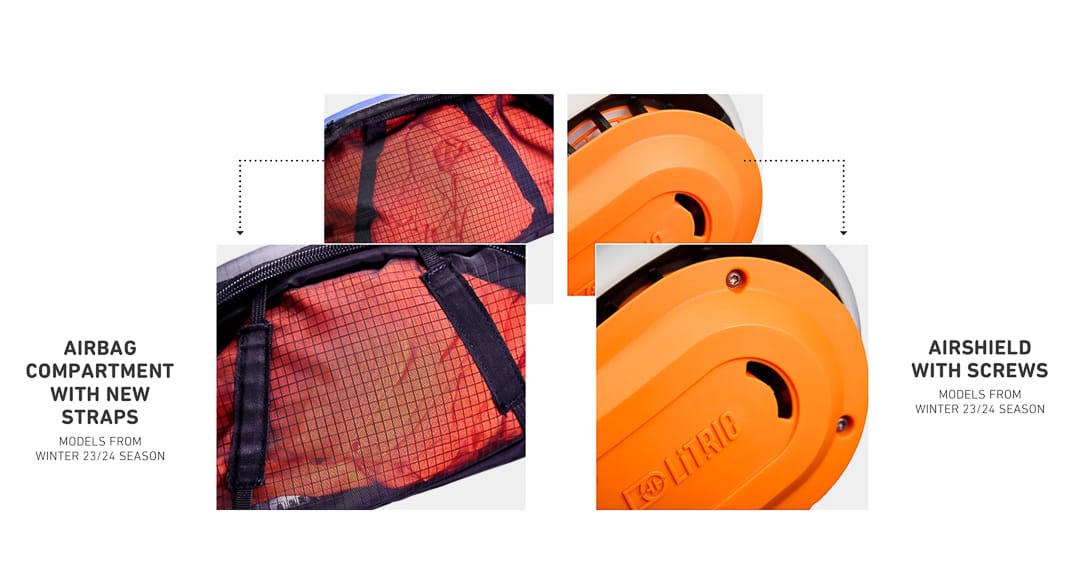
The LiTRIC was supposed to be for sale in North America last season. Ortovox issued a recall notice due to issues with the fan’s airshield. The airshield now arrives with two small screws to secure it in place. Engineers also chose to reinforcing the webbing/straps on the airbag compartment. (See photos below.)
Pack Comments
In the interest of saving weight and opting for simplicity, I opted for the “Zero” system rather than the modular (zip on-zip off) Freeride system. While I appreciated a non-modular system’s low weight and simplicity, a few more features would be a nice compromise between weight and functionality. The pack is exceptionally simple, with one main compartment and a small zippered pocket on the front. It lacks a specified avalanche gear pocket and instead has webbing loops on the inside of the pack to organize a shovel and probe. It is best to have a relatively small shovel and probe here, as space is tight. The Mammut 240 short probe is a good option here as the airbag “stuff sack” and top of the pack limit the length. For some users, this minimalism may make sense; a lightweight airbag system pairs well with lightweight avalanche gear. For me, an airbag is inherently not a lightweight pack option and is likely getting used in a more complex snowpack that perhaps warrants a less compact shovel and probe setup, in addition to tools like a snow saw, which don’t fit well in the Zero.

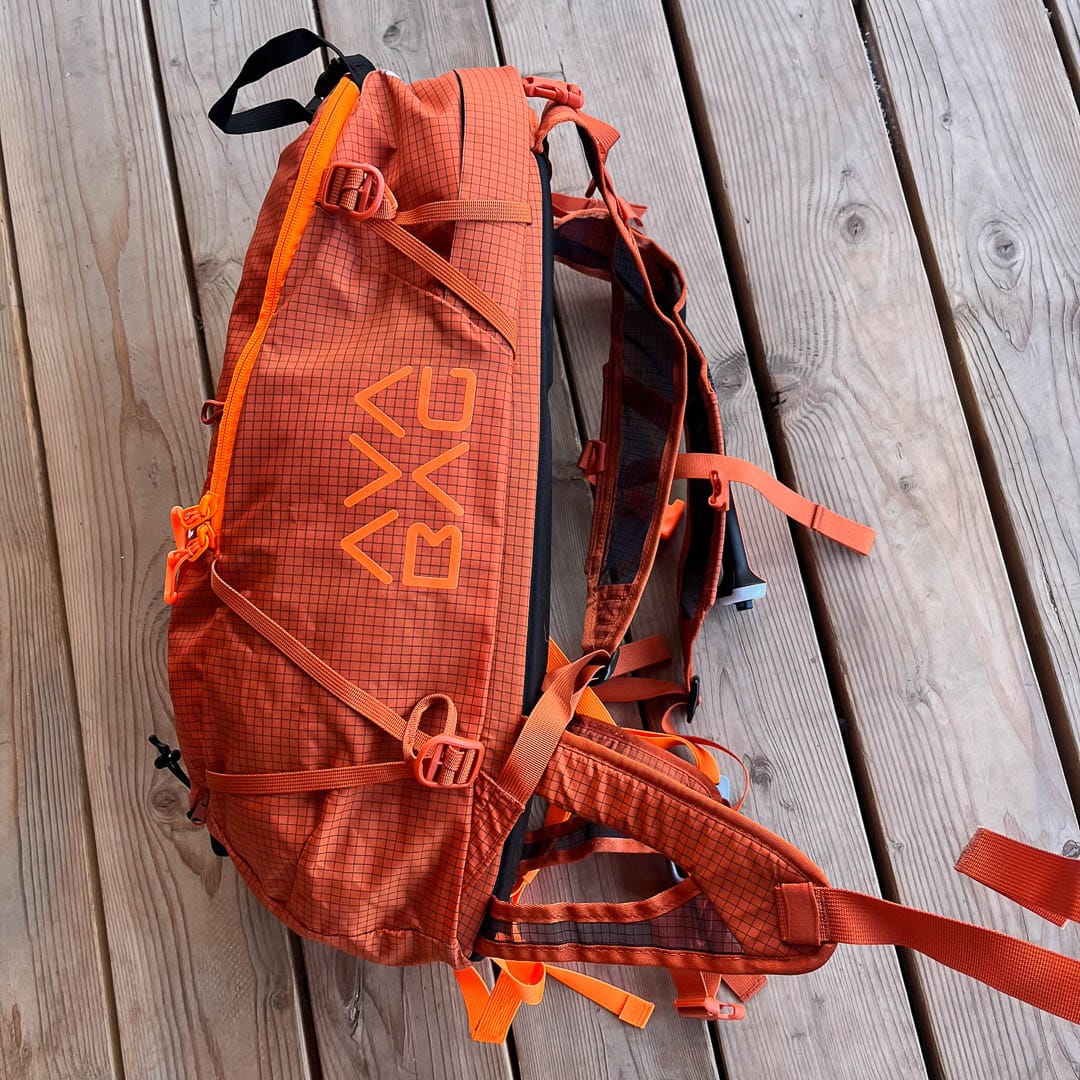
At the top of the main compartment sits the LiTRIC System; it is compact, but the layout is in the form factor of a football rather than spread out along the pack’s spine. With a light load, this made for a top-heavy feel, with weight concentrated between my shoulder blades. With a more full pack, it made for awkward access as the pack doesn’t want to stay upright and sort of “dumps ”the contents when it folds over after opening. This annoying quirk made using the pack with a full load challenging. The panel loader style access also doesn’t allow for stuffing the pack or particularly careful packing, but is alright with a smaller load such as resort backcountry or a quick tour in nice weather. Perhaps somewhere like Chamonix (with my French first aid kit of two cigarettes and a cell phone), the size and shape may work out a little better, but in a more wilderness touring setting, it’s a little small and fiddly.
The suspension system is similarly minimal to the rest of the pack. The shoulder straps are mesh with soft binding, while the hip belt has a mesh “wing” and a lightly padded “wing.”. The back panel is a fairly standard compression molded foam/lycra that is easy on clothing and absorbs some water/sweat but not too much. Overall, the suspension is fine; given the relatively small capacity and lightweight, it doesn’t need to be more robust than it is. The through-the-leg strap has a nice carabiner and loop attachment, which is much better off the shelf than a standard airbag with a “thread-the-loop” system.
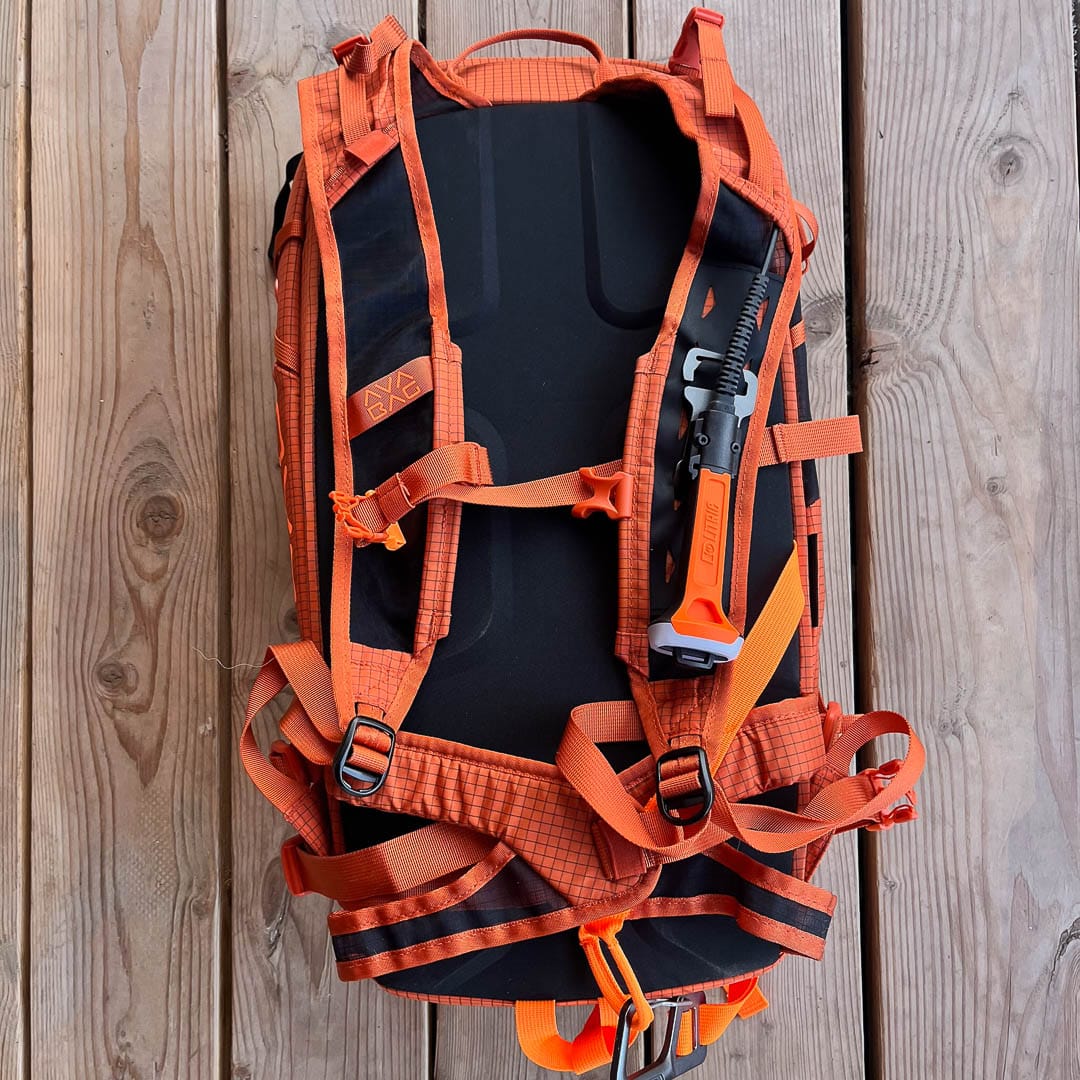

Overall, the LiTRIC Zero is among the best options for a lightweight battery-powered airbag system. While I like the weight numbers and the simplicity, I think the functionality tradeoff of a few hundred extra grams worth of organization and convenience features, such as a roll top+side zip closure and or a dedicated avalanche gear pocket, would significantly increase the pack’s usability.

Basic Stats
Price: $1200.00
Weight: 2010g (pack and LiTRIC system) making this a near 5 pound unit.
Volume: Stated is 27 L
Helmet Carry: Yes
Axe Carry: Yes
Simple Ski Carry System: Confirmed

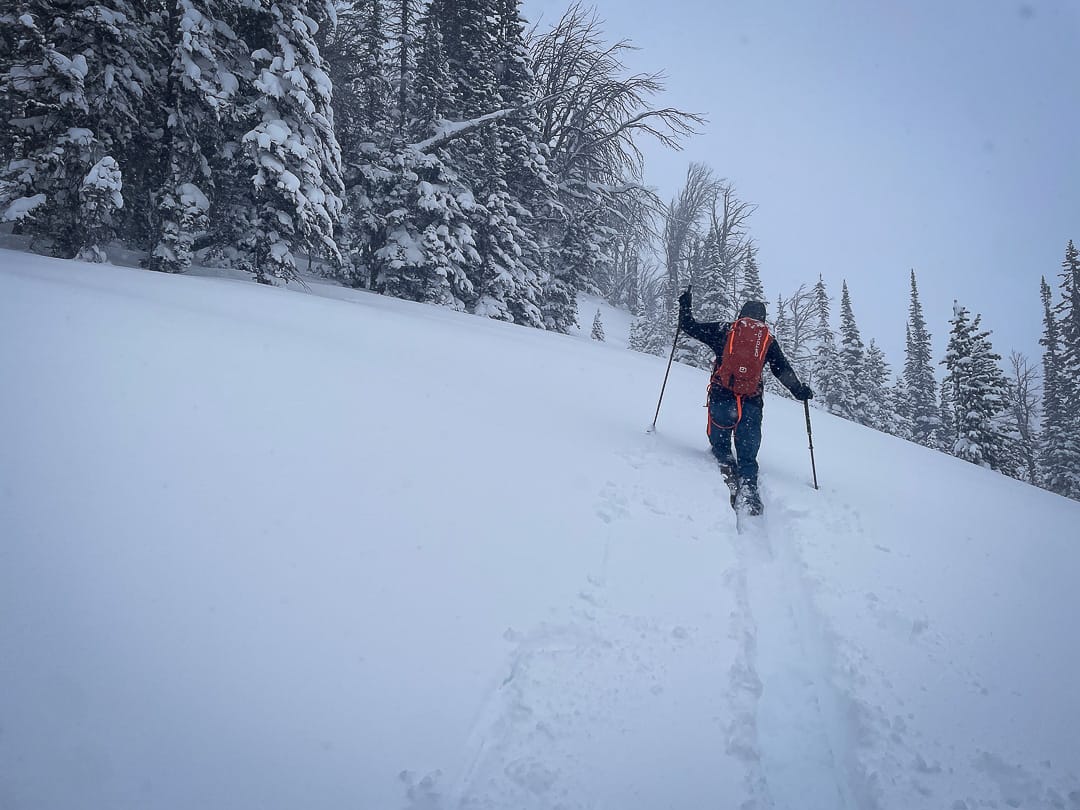

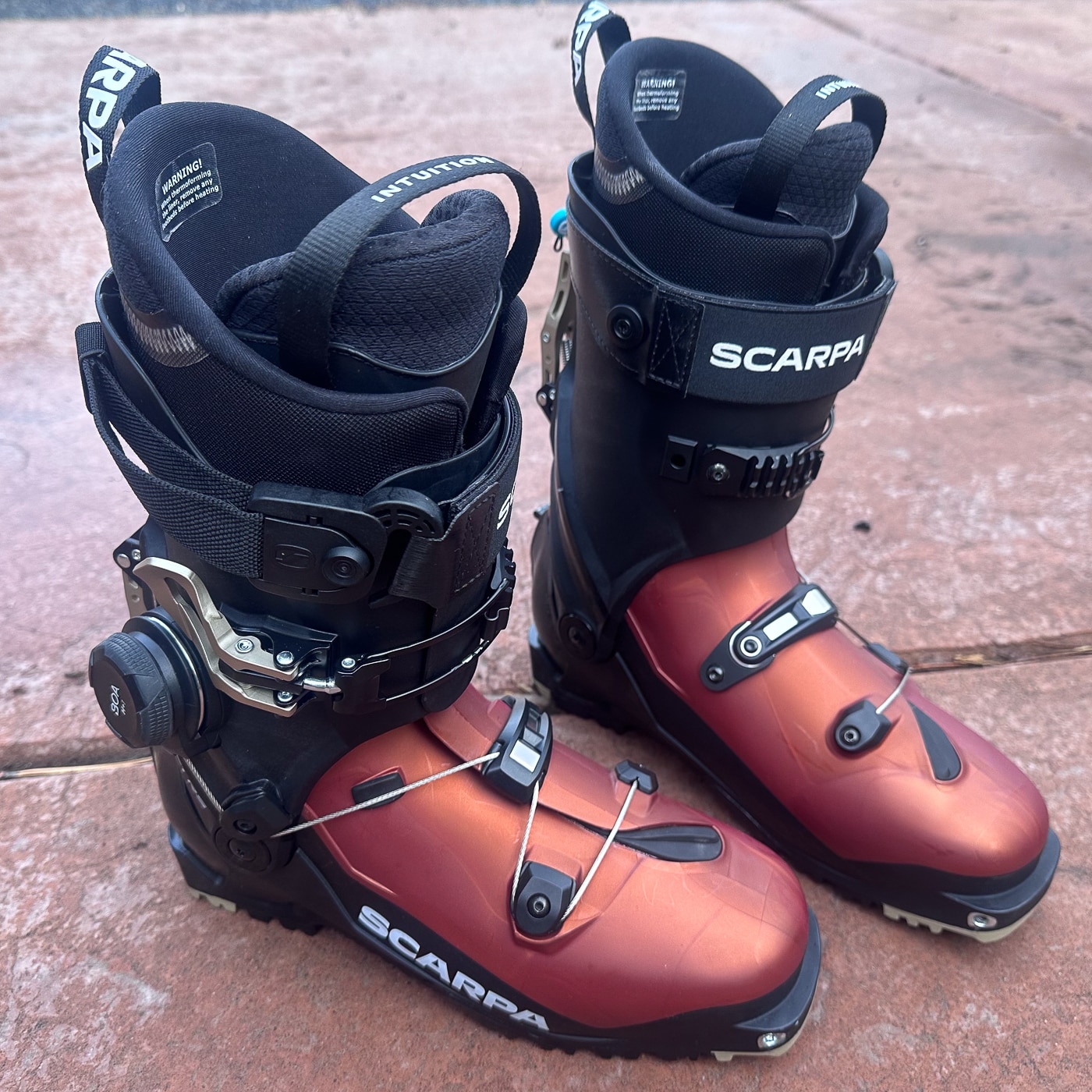


Leave a Reply
You must be logged in to post a comment.